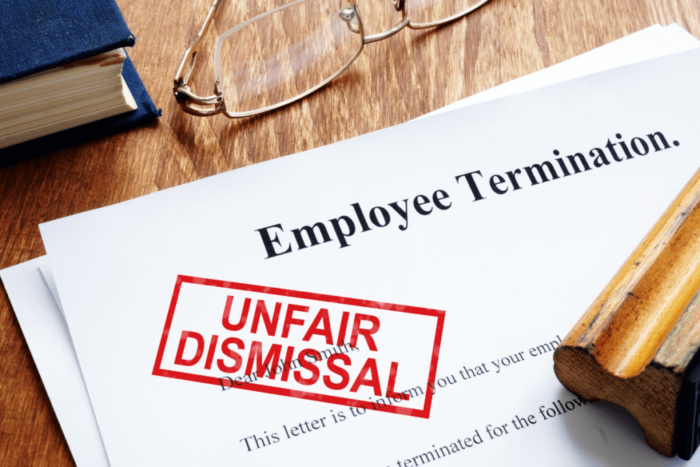
At-will employment is a type of employment where you can be terminated at any time without cause, notice, or a reason, as long as you aren’t fired for something illegal such as discrimination or retaliation. The relationship between the employer and the employee is voluntary, and either one can terminate the relationship without notice. However, at-will employment is illegal in Canada. If you have been hired as an at-will employee, you can consult employment lawyers to find out your rights. Take a look at the top 10 rights employees have under at-will employment.
1. An At-Will Clause Is Illegal
The first right you have is that an at-will clause in your contract is illegal. In Canada, the appropriate term would be that you are hired for an indefinite term, and you have rights in terms of your termination. At-will employment is regularly used in the United States, and it is mostly American companies operating in Canada that include this type of clause. However, if your contract has it and you are fired, you have the right to pay in lieu of notice.
2. You Are Entitled to Notice

When you work in Canada, you are entitled to notice before you are terminated. There are different factors that determine how much notice you need to provide, and laws vary slightly between provinces. Your contract should state how much notice you will receive, and it has to meet the minimum set by common law in the province. The age of the employee matters, as those closer to retirement are entitled to more notice. In addition, employees who have worked for a long time are entitled to more notice. The availability and character of comparable employment also plays a role.
3. There May Be Minimum Severance Pay
At-will contracts are illegal, so some provinces also require a minimum severance pay. After you have worked for three months consecutively, British Columbia gives one week’s pay in lieu of notice of termination. Other provinces have laws that regulate this. The key is to understand your rights, and if you find an at-will clause and you have been terminated, you have the right to consult with employment lawyers like employmentlawyertoronto.me and get what is rightfully yours.
4. They Need Cause to Terminate Employees

Even if there is an at-will clause in the employment contract, because it is illegal and invalid, you must be fired for cause. Employers need a reason. Most employers also give notice to make sure that they are following the law. It can be difficult for them to prove just cause. You should make sure that you were fired for a valid reason, and it should be transparent and clear.
5. They Can’t Deny You Minimum Wage
By law, you are entitled to a minimum wage that is set. An employment contract that states you are an at-will employee is not able to pay less than the minimum wage. They can pay you more, but you have the right to be paid the way any other lawfully employed person in Canada is. The at-will clause is illegal and you are actually an indefinite term employee, so you are entitled to the same rights as they are.
6. Discrimination Is Prohibited

If you have an at-will employment contract, it is not valid. Even so, discrimination is prohibited. The Canadian Human Rights Act prohibits any discrimination based on gender, race, ethnicity, age, and a few other grounds. It was passed in 1985, and has been updated over the years. There are also laws under the Employment Equity Act, which fall under the Department of Justice Canada. They protect the rights of women, people with disabilities, Aboriginal people, and visible minorities. No matter what kind of employment contract you have, your employer isn’t allowed to discriminate against you.
7. You Are Entitled to Overtime Pay and Outstanding Wages
No matter what kind of employment contract you have, you are entitled to outstanding wages and overtime pay. You need to keep track of what you are owed, and make sure that you receive it. This means that if you are fired without cause, you are entitled to compensation according to law. At-will work is illegal in Canada, so you will be treated as a contract worker and a court will find your at-will contract invalid.
8. You Are Entitled to Overtime If You Exceed Maximum Hours

The rules and laws for overtime are different in different parts of Canada, but generally, there is an overtime pay rate that is equal to one and a half times your normal pay. Your employer can’t force you to work more hours, and they can’t refuse to pay overtime. They also can’t fire you if you choose not to work overtime hours. If you have an at-will clause in your contract, it will be found invalid and replaced with a standard indefinite term contract.
9. You Must Be Paid at Regular Intervals
When you work in Canada, you must be paid at regular intervals, and you will receive a statement that shows you your wages and deductions for each pay period. It doesn’t matter if there is an at-will clause, you are still entitled to this right. If your employer doesn’t do this, you can console an employment lawyer to find out what your rights are. Make sure that you are treated fairly and according to the laws.
10.You Are Entitled to Paid Vacation After a Year of Employment

Most people who work in Canada are entitled to an annual paid vacation. In British Columbia, Alberta, Manitoba, Ontario, and Quebec, once you have worked for an employer for a year, you must receive two weeks of paid vacation each year. However, there are differences in different parts of Canada, so you might want to consult an employment lawyer to find out exactly what your rights are. Don’t let an at-will clause frighten you because they are illegal in Canada, and an employer will be required to change it once a court invalidates it.
















